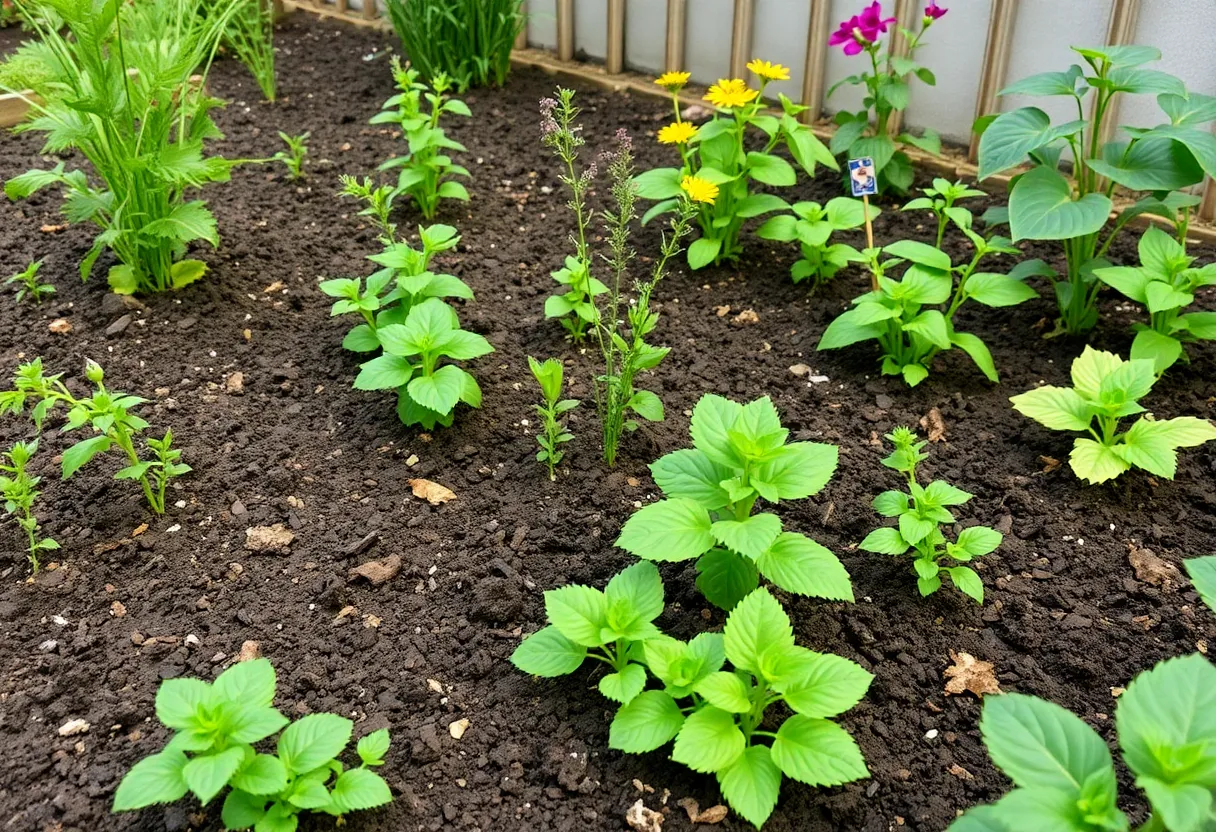How to Choose the Right Soil for Your Houston Garden Success
Selecting the appropriate soil is fundamental to achieving a thriving garden in Houston’s distinctive climate. The region’s soil characteristics and proper amendments directly influence plant health and productivity. Understanding the local soil types and employing strategic practices can dramatically enhance your gardening success.
Houston’s Native Soil Composition
Houston’s native soil is predominantly clay-based, commonly referred to as “gumbo”. This soil type is characterized by its heavy texture, poor drainage, and tendency to compact easily under pressure. Such conditions pose significant challenges for root expansion and nutrient uptake, often resulting in stunted growth or plant stress.
The Importance of Soil Testing
Prior to modifying the soil, conducting a thorough soil test is crucial. Either utilize soil testing kits available at local garden centers or send a sample to a trusted extension service. This analysis provides vital information regarding pH levels, nutrient content, and soil texture. Armed with this data, gardeners can tailor amendments precisely to optimize soil conditions and plant health.
Strategies for Improving Houston’s Clay Soil
Transforming Houston’s heavy clay into a fertile, well-draining medium requires integrating organic matter and applying appropriate amendments. This process enhances soil structure, improves drainage, and boosts nutrient availability.
Incorporating Organic Matter
Organic matter such as compost, aged manure, or leaf mold introduces essential nutrients and improves soil porosity. These amendments support the proliferation of beneficial microorganisms, which play a vital role in nutrient cycling and maintaining soil health. Consistent addition of organic matter helps sustain long-term fertility and resilience.
Mulching Benefits
Applying organic mulch—such as shredded leaves, pine needles, or straw—provides multiple advantages. Mulch conserves moisture, reduces weed emergence, and regulates soil temperature. As mulch decomposes, it further enriches the soil with organic material, reinforcing its structure and fertility.
Soil Amendments for Specific Challenges
Houston gardeners can utilize specialized amendments depending on soil issues:
- Expanded Shale: A lightweight, porous material that improves drainage and aeration in compacted clay soils.
- Lava Sand: A volcanic stone known for retaining moisture and stimulating microbial activity beneficial for plant growth.
- Texas Green Sand: Rich in minerals such as potassium and iron, it enhances soil fertility and structure.
Choosing the Right Plants for Houston’s Soil
Opt for native species or plants adapted to clay soils. These plants are more resilient, require less maintenance, and thrive despite less-than-ideal conditions. Examples include native grasses, wildflowers, and drought-tolerant perennials. Selecting appropriate plants reduces the need for extensive amendments and increases the likelihood of a successful garden.
Maintaining Soil Health Over Time
Consistent practices are vital to sustain soil fertility. Regularly add organic matter, reapply mulch, and retest soil periodically. This ongoing management maintains balance, supports beneficial microorganisms, and ensures plants continue to flourish despite environmental fluctuations.
Conclusion
In Houston’s challenging soil environment, understanding your soil is the foundation of gardening success. Incorporate organic amendments, select resilient plants, and perform regular maintenance to create a fertile, well-structured soil environment. These strategies enable your garden to thrive amid Houston’s unique climate and soil conditions, ensuring healthy plants and rewarding growth.
Frequently Asked Questions
What is the best way to test my soil in Houston?
Use soil testing kits available at garden centers or send a sample to a local extension service for detailed analysis. This helps determine pH and nutrient levels essential for effective soil amendments.
How can I improve Houston’s clay soil for planting?
Incorporate organic matter like compost or leaf mold, use soil amendments such as expanded shale or lava sand, and regularly apply mulch to improve structure, drainage, and fertility.
Which plants are best suited for Houston’s native soil?
Native grasses, wildflowers, and drought-tolerant perennials thrive in Houston’s clay soils. These species are naturally adapted and require less intervention and amendment.
How often should I amend my soil?
Apply organic matter and mulch seasonally or as needed. Conduct periodic soil tests annually or biannually to adjust amendments for optimal soil health and plant growth.
Key Features of Selecting Soil for Houston Gardens
| Feature | Description |
|---|---|
| Native Soil Type | Primarily clay, heavy, poor drainage, easy to compact |
| Critical First Step | Soil testing to understand pH and nutrient content |
| Core Amendment Strategies | Adding organic matter and specialized soil amendments |
| Plant Selection | Opt for native or clay-tolerant species for better resilience |
| Maintenance Practices | Regular addition of organic matter, mulching, and testing |
Author: STAFF HERE HOUSTON TX WRITER
The HOUSTON STAFF WRITER represents the experienced team at HEREHouston.com, your go-to source for actionable local news and information in Houston, Harris County, and beyond. Specializing in "news you can use," we cover essential topics like product reviews for personal and business needs, local business directories, politics, real estate trends, neighborhood insights, and state news affecting the area—with deep expertise drawn from years of dedicated reporting and strong community input, including local press releases and business updates. We deliver top reporting on high-value events such as Houston Livestock Show and Rodeo, Art Car Parade, and Chevron Houston Marathon. Our coverage extends to key organizations like the Greater Houston Partnership and Houston Area Urban League, plus leading businesses in energy and healthcare that power the local economy such as ExxonMobil, Schlumberger, and Houston Methodist. As part of the broader HERE network, including HEREAustinTX.com, HERECollegeStation.com, HEREDallas.com, and HERESanAntonio.com, we provide comprehensive, credible insights into Texas's dynamic landscape.





